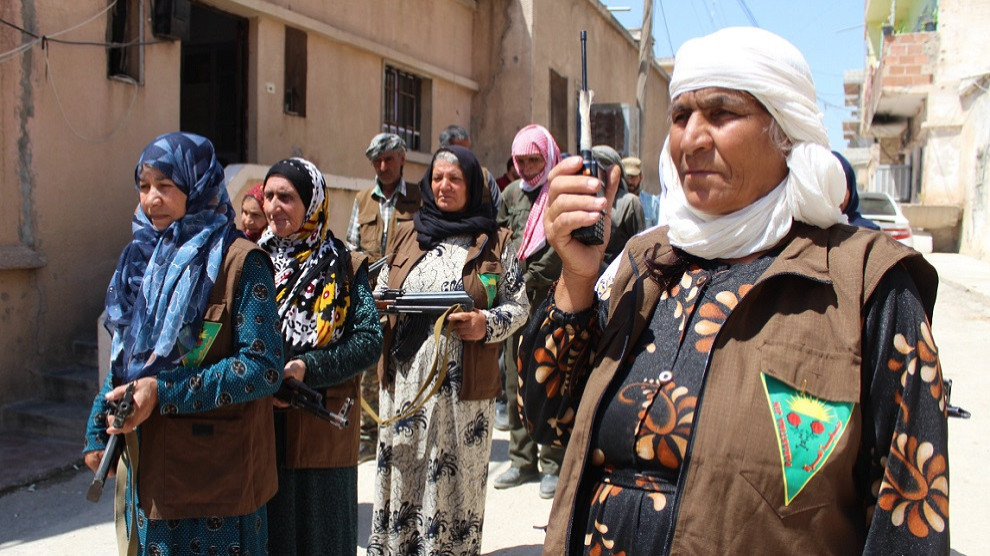Six years of autonomous administration in Cizîrê
Six years ago the autonomous administration was proclaimed in Cizîrê. During this time it was proved that the peoples can govern themselves if they rely on an equal and free co-existence.
Six years ago the autonomous administration was proclaimed in Cizîrê. During this time it was proved that the peoples can govern themselves if they rely on an equal and free co-existence.

Since the beginning of the civil war between the Syrian regime and the externally controlled opposition, the people of northern Syria have been on a third path. They have had to defend themselves against Islamist groups such as ISIS and al-Nusra, and within a short period of time have built up their own political system, which is now the autonomous system of northern and eastern Syria.
On January 21, 2014, the autonomous administration was proclaimed in what was then Cizîrê Canton, based on Abdullah Öcalan's model of a democratic nation. Within the autonomous administration, there was an executive and a legislative council in which the Kurdish, Arab, Syriac, Assyrian, Chechen, Armenian and Yazidi populations were represented. With the later establishment of the autonomous administration of North and East Syria, Cizîrê, as well as Kobanê and Afrin, was no longer called a canton but one of seven regions.
During the past six years, the Autonomous Administration of Cizîrê has proved with its successful work that the peoples can govern themselves if they rely on co-existence on equal and free terms. The project of the Autonomous Administration is based on local grassroots organization and thus represents an alternative to central governments and the nation-state model.
Within the autonomous administration in Cizîrê, based on the Rojava social contract, institutions such as the electoral commission and courts have been established in addition to the legislative, executive and judicial councils, for which human rights and international legal standards are decisive. There are also committees and local councils. The autonomous administration of Cizîrê is responsible for the security of the people living in the region. Institutions have been established in the fields of politics, security, economy, health, education and social services.
In the past six years 105 laws have been passed to facilitate administration. In addition, 35 different political parties have been registered.
The biggest hurdle that the autonomous administration had to overcome was the fight against Islamists. Other major problems are the existing embargo, the closure of the borders and the provision of food for the refugees. The number of people seeking protection has increased further with the Turkish occupation of Serêkaniyê and Girê Spî.